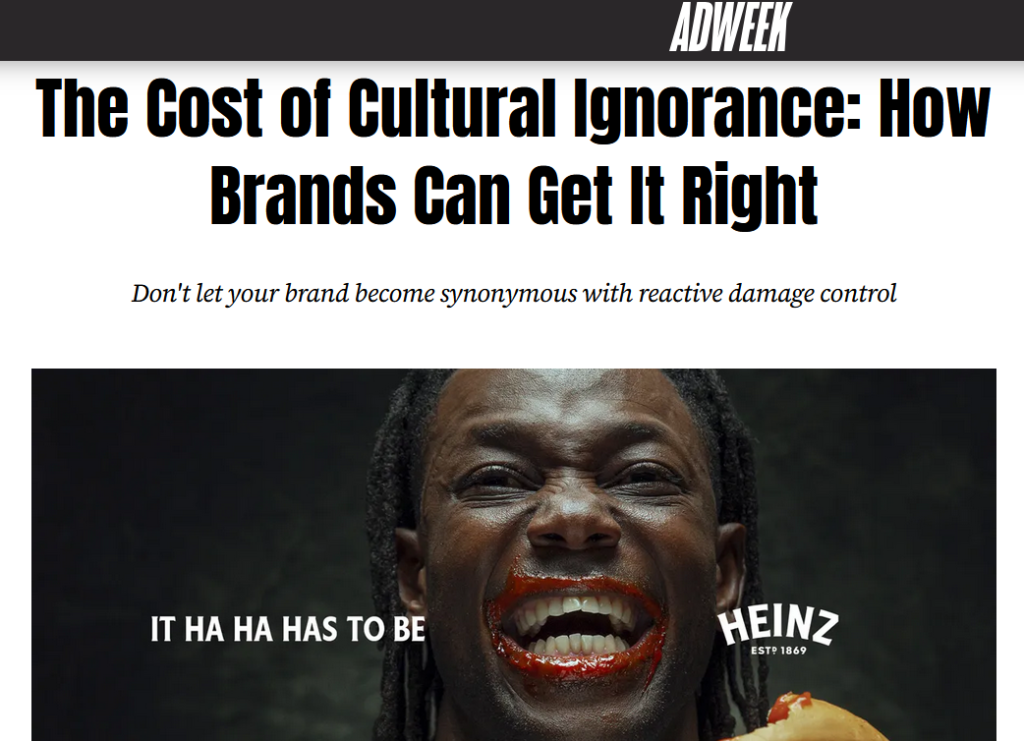Yes, AND…
Heinz got some major push back for their latest ad that showed a Black person with ketchup around their mouth similar to the racist satire of the Jim Crow era. (The campaign also had people of other ethnicities with the same look, but this image was particularly offensive).

An excellent Adweek article (The Cost of Cultural Ignorance: How Brands Can Get it Right, by Destiny K. Chamber) talks about the ways organizations can reduce the chance of making this same mistake. My thoughts are added in parentheses.
• Get diversity in the room where decisions are being made. “Diversity isn’t a trend; it’s the world we live in.”
• Have “cultural sensitivity checks” built into the design process and make them mandatory. Use an internal checklist o audit tool to support this, but extremely critical, make it one created USING feedback from the community you want to serve (nothing for us without us)
• If you have them, use ERGs as a resource to bounce ideas off of and get their genuine responses (be aware of power issues at play and compensation/recognition)
• Be authentic and don’t just jump on every fad if it doesn’t align with your organization’s values.
• Don’t operate with the idea that you’ll act fast and ask for forgiveness later. Prevent the mistakes before they happen by being diligent ahead of time.
My one add-on to this piece is to remember that diversity is more than race and gender. Diversity is age, socioeconomic status, disability, neurodivergences and so much more. And practicing cultural sensitivity means being sensitive to each of these group’s cultures.
I cringed a little when I read, “Use focus groups, surveys, or online platforms to gauge reactions and identify potential blind spots”, as I have learned from many in the disability community that “blind spot” is term to stay away from.
But it’s about progress, not perfection and following the suggestions outlined in this article would be critical progress we need.